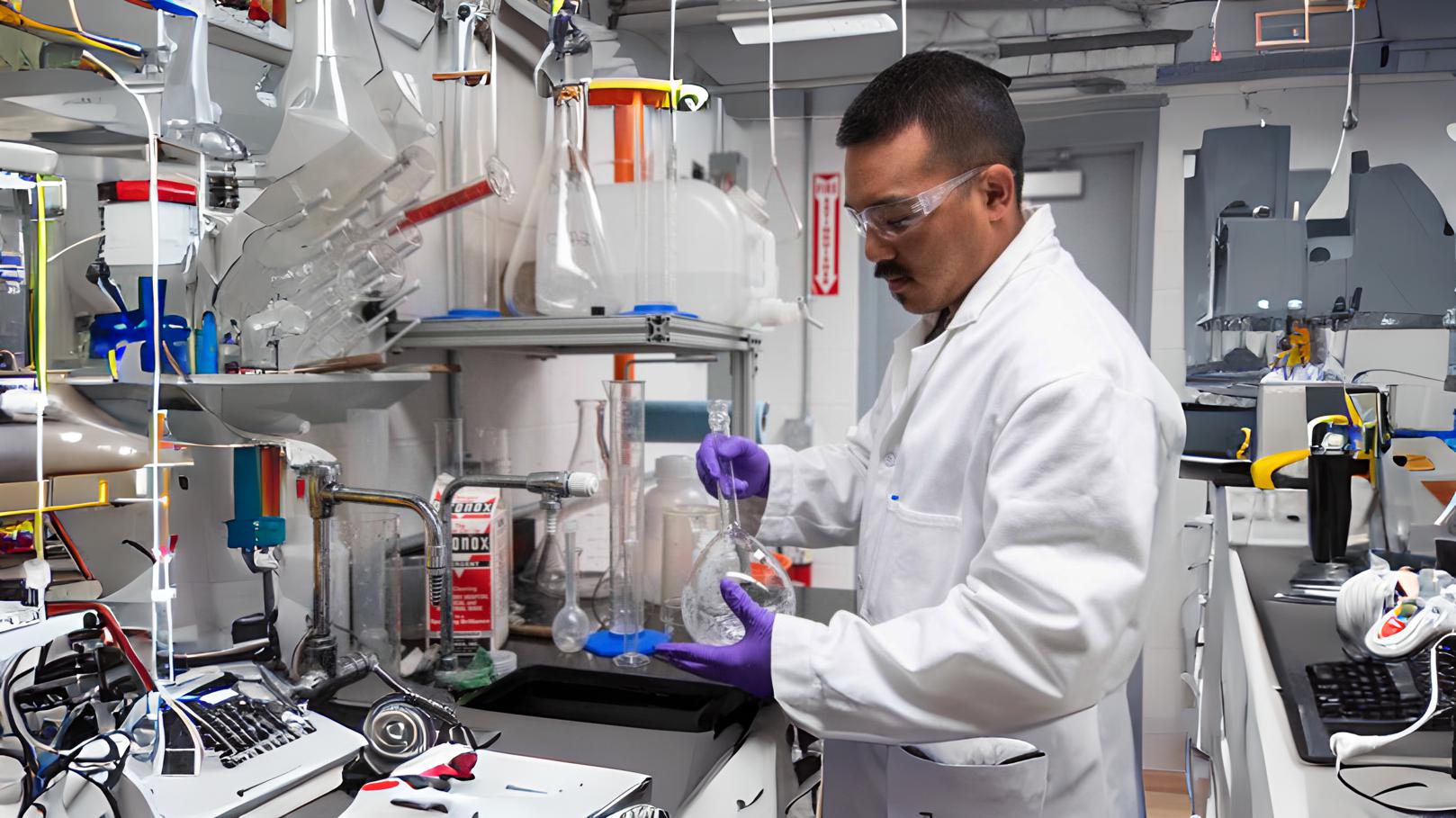Future Trends in Clinical Trials and Pharmacovigilance for the Next 5 Years
 1 year ago
By John Lewis Elopre
1 year ago
By John Lewis Elopre

The field of clinical trials and pharmacovigilance (PV) is constantly evolving, driven by advances in medical science, technology, and regulatory requirements. As we look ahead to the next five years, it is evident that significant changes and innovations will shape the landscape of these crucial areas. In this article, we will explore the upcoming advancements in clinical trials and PV that are set to revolutionize the healthcare industry.
Leveraging Artificial Intelligence (AI) and Machine Learning in Clinical Trials
In the coming years, AI and machine learning will play a pivotal role in transforming the way clinical trials are conducted. These technologies have the potential to streamline various processes, enhance data analysis, and improve patient recruitment. AI-powered algorithms can quickly identify suitable candidates for specific trials based on their medical history, genetic makeup, and other relevant factors. This efficiency will lead to reduced costs and faster trial completion, ultimately benefiting patients and researchers alike.
Decentralized Clinical Trials (DCTs) and Virtual Trials
Traditional clinical trials often involve the physical presence of participants at specific research sites. However, DCTs and virtual trials are gaining momentum, especially after the COVID-19 pandemic accelerated the adoption of remote healthcare solutions. With DCTs, patients can participate from the comfort of their homes, eliminating the need for frequent travel and reducing logistical complexities. This approach increases patient diversity and expands the reach of clinical trials, providing a more representative sample for research purposes.
Personalized Medicine and Targeted Therapies
The era of personalized medicine is dawning upon us. Advancements in genomics and molecular diagnostics have opened doors to targeted therapies tailored to an individual’s specific genetic makeup and disease characteristics. This approach can lead to more effective treatments with fewer side effects, as medications are optimized for each patient’s unique biology. As we progress, personalized medicine will become increasingly common in clinical trials and drug development, revolutionizing patient care.
Real-World Evidence (RWE) and Post-Marketing Surveillance
While clinical trials provide valuable data, real-world evidence (RWE) is gaining importance in assessing a drug’s performance in the broader population. RWE encompasses data from electronic health records, claims databases, and patient registries, offering insights into long-term safety and effectiveness. Regulatory agencies are increasingly relying on RWE to support post-marketing surveillance, which will influence drug approvals and label updates in the future.
Blockchain Technology for Data Security and Integrity
The decentralized and immutable nature of blockchain technology makes it an ideal candidate for enhancing data security and integrity in clinical trials. By using blockchain, researchers can ensure that sensitive patient data remains confidential and unaltered, reducing the risk of data breaches and fraud. Additionally, smart contracts on the blockchain can automate various trial processes, making them more efficient and transparent.
Wearable Devices and Digital Endpoints
Wearable devices and digital endpoints are revolutionizing how clinical trials collect data. These devices can continuously monitor patients’ vital signs, activity levels, and other health-related metrics in real-time. By providing a constant stream of data, wearable devices enable researchers to have a deeper understanding of a drug’s effects on patients over an extended period. This data-rich environment will lead to more informed decision-making and better treatment outcomes.
Regulatory Evolution and Streamlined Approvals
Regulatory agencies worldwide are recognizing the need to streamline drug approvals and reduce time-to-market for critical medications. Consequently, they are adopting innovative approaches to expedite the approval process while ensuring safety and efficacy. Such changes will encourage pharmaceutical companies to invest in research and development confidently, knowing that they can bring life-saving drugs to patients more efficiently.
Patient-Centricity and Inclusive Trial Design
Patient-centricity will continue to be a driving force in shaping the future of clinical trials. Researchers are placing a greater emphasis on involving patients in trial design and decision-making processes. By understanding patients’ needs and preferences, researchers can design trials that are more inclusive and better aligned with real-world scenarios. This approach leads to higher patient engagement, improved retention, and ultimately, more reliable trial results.
Advanced Data Analytics and Predictive Modeling
Data analytics will become even more sophisticated, allowing researchers to derive valuable insights from vast amounts of data generated during clinical trials. Predictive modeling can help identify potential safety issues early in the development process, preventing adverse events and facilitating better risk management. Furthermore, advanced analytics can aid in patient recruitment, ensuring that trials enroll the right candidates efficiently.
Global Collaboration and Data Sharing
Collaboration among researchers, pharmaceutical companies, and regulatory authorities across borders is vital to address global health challenges effectively. By sharing data and knowledge, stakeholders can collectively work towards developing innovative treatments for rare diseases and unmet medical needs. Initiatives like data-sharing platforms and international research consortia will foster a more interconnected and collaborative research ecosystem.
In conclusion, the future of clinical trials and pharmacovigilance is bright and promising. The integration of cutting-edge technologies, patient-centric approaches, and streamlined regulatory processes will propel medical research to new heights. Embracing these future trends will not only accelerate drug development but also improve patient outcomes and contribute to advancing healthcare on a global scale.

How Effective is the Automation and Validating of Human Dose Predictive Models?
Dose prediction is a critical part of drug discovery which determines the safety and efficacy of drugs within patients. Dose response predictions are made with preclinical models which quantify pharmacokinetic (PK) behaviour via a number of parameters. Despite the continuous...
3 years agoHow Effective is the Automation and Validating of Human Dose Predictive Models?
Dose prediction is a critical part of drug discovery which determines the safety and efficacy of drugs within patients. Dose response predictions are made with preclinical models which quantify pharmacokinetic (PK) behaviour via a number of parameters. Despite the continuous...
3 years ago
Predicting Drug Toxicity: Challenges and Innovations
Failure to reach the desired safety profile is one of the main reasons for delayed drug development. Advancements in preclinical studies have seen the optimisation of in vitro assays to better predict toxicity in drug discovery. Computational methods like in...
3 years agoPredicting Drug Toxicity: Challenges and Innovations
Failure to reach the desired safety profile is one of the main reasons for delayed drug development. Advancements in preclinical studies have seen the optimisation of in vitro assays to better predict toxicity in drug discovery. Computational methods like in...
3 years ago
A Look Ahead: Clinical Trials and PV Over the Next 5 Years
Given the severity of industry disruptions in 2020, and the surge in innovation and development that followed, the future of clinical operations seems more clouded than ever. Proventa set out to find out more about the future of Clinical Trials...
3 years agoA Look Ahead: Clinical Trials and PV Over the Next 5 Years
Given the severity of industry disruptions in 2020, and the surge in innovation and development that followed, the future of clinical operations seems more clouded than ever. Proventa set out to find out more about the future of Clinical Trials...
3 years ago